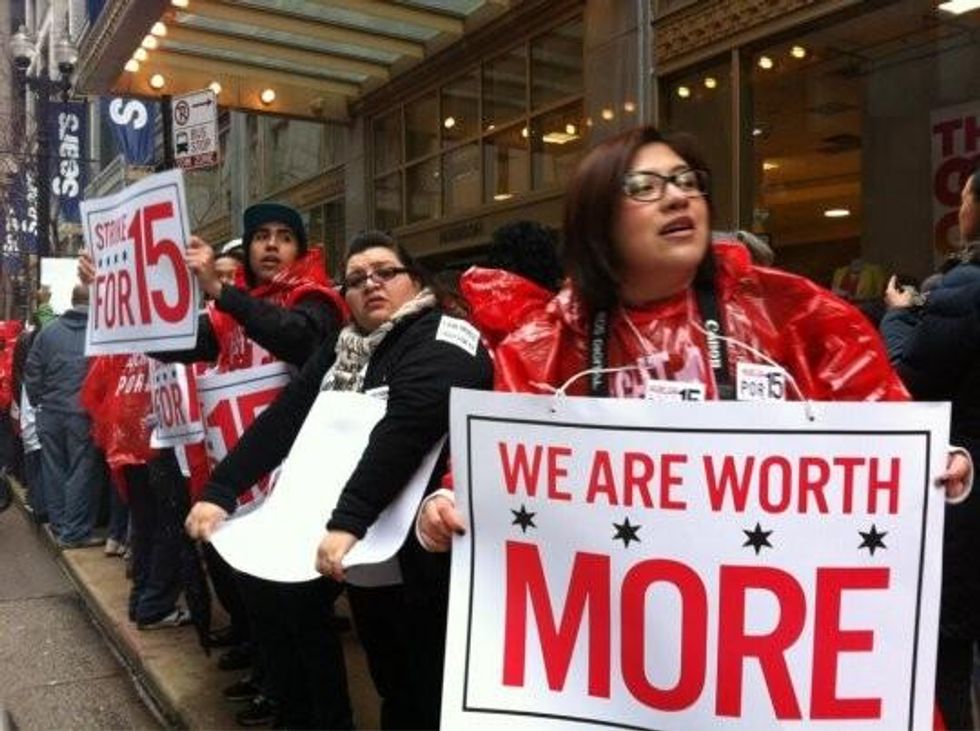Low wage fast food and retail
workers have joined forces in Chicago on Wednesday in an unprecedented strike calling for $15 an hour and the freedom to form
unions without retaliation.
Some of the nation's biggest stores--McDonald's, Subway, Dunkin Donuts, Macy's, Victoria's Secret and Sears--will be affected by the action that follows the momentum of similar strikes in New York City in November and just weeks ago, as well as a walkout by Walmart workers on Black Friday.
"Workers across the country are tired. We're tired of working hard, but not earning enough to support our families," said Krystal Collins, a Macy's worker. "After seeing the workers in New York say they weren't going to take it anymore, we were inspired to go on strike right here in Chicago."
Many of the workers are earning the state minimum wage of $8.25 an hour, what Lorraine Chavez of the Workers Organizing Committee of Chicago, the group behind the Fight for 15 campaign, called "poverty wages and homelessness wages."
The Workers Organizing Committee of Chicago, a union of fast food and retail workers, explains their Fight for 15 campaign on their website:
Chicago's fast food and retail workers, mostly adults with families, and those who support us are fighting for the just compensation and dignified treatment that all hardworking Americans deserve. As the Workers Organizing Committee of Chicago, we demand a fair wage of $15 an hour and the right to form a union without retaliation so we can support our families, strengthen Chicago's economy, reduce crime, and improve our neighborhoods.
Each year, retail and fast food workers bring over $4 billion into the stores and restaurants of downtown Chicago alone, but almost all of these profits make rich executives and investors even richer while we struggle to provide ourselves and our families with basic necessities. We believe that people who work hard for a living should make enough to support themselves, their families and their neighborhoods - and that workers should be treated with dignity and respect. That's why we're coming together to Fight for 15.
The group cites the MIT Living Wage Calculator, which shows that a single person with one child in Chicago would actually need nearly $21 an hour to make a living wage.
What even a $15 an hour wage would mean, though, is life changing. Micah Uetricht writes in The Nation:
When explaining what a raise to $15 per hour would mean to her, Trish Kahle, a Whole Foods worker, stated simply, "I could have heat all winter."
"It would take me about 777 years to earn as much as the McDonald's CEO made last year," said Tyree Johnson, a McDonald's worker. "I'm not asking for all that, just for enough to pay my train fare without having to worry about taking food off the table."
Uetricht continues that the group's main demand of $15 per hour is
part of the campaign's larger demand-side economics argument that is rarely heard in the age of austerity: in a city with massive violent crime rates in poor neighborhoods, the best crime prevention tactic is raising the wages of workers in those neighborhoods [PDF].
Chicago's ABC-7 has video:
The Workers Organizing Committee of Chicago will be live streaming their rally at St. James Cathedral at 3:30 PM Central.
_________________________




